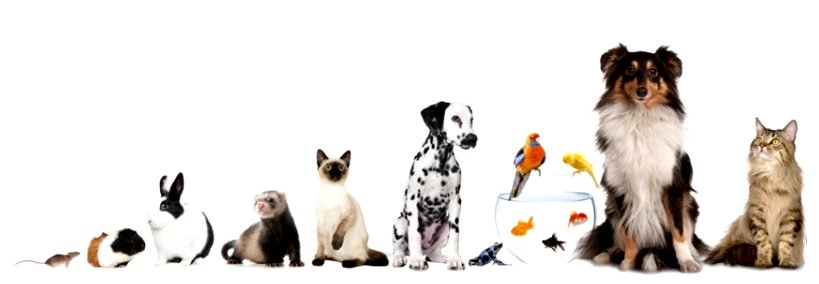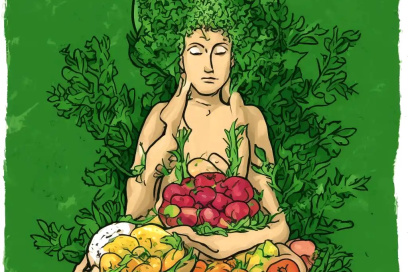As someone living the vegan lifestyle, you may be wrestling with the ethical implications of owning an animal companion. Is it okay for members of this community to adopt pets? This question can often become clouded with misguided information that makes its discussion cumbersome, making this issue difficult to broach. But the notion that veganism and pet ownership are incompatible is inherently flawed. Pet ownership offers numerous advantages that resonate with both its creature and human caregiver. In this discussion, we shall investigate the intersection between veganism and pet ownership. Additionally, we will offer invaluable insights on how to become an ethical pet owner while considering issues such as environmental sustainability and animal welfare. Are you curious about adopting or already have pets? Then don't fret: our discussion is tailored just for you. Join us as we delve into the complex world of veganism and pet ownership - busting myths and clearing up long-held misconceptions along the way!
I. Introduction
Veganism stands out among the multitude of lifestyles as an example that is good for the animals, environment and ourselves alike. Veganism focuses on minimizing harm to sentient creatures in our world while still creating meaningful lives without suffering to animals.
Though veganism is clear on this point, vegans still face concerns regarding ethical aspects of pet ownership. On first impression, having a furry, feathered, or scaled friend could go against their belief system that views animals as living beings rather than commodities.
At closer examination, it becomes evident that owning pets and living a vegan lifestyle do not contradict one another; provided certain ethical pet ownership principles are observed by vegans.
Pet ownership dates back to ancient times when our ancestors domesticated animals for companionship, hunting and protection. Today, pets are considered valued members of their families whose usefulness goes far beyond just practicality.
Cats as Emotional Support Animals for Vegans
Cats play an invaluable role in vegans' lives by providing emotional support, relieving stress, and stimulating social interactions. Additionally, responsible ownership encourages a sense of responsibility while creating empathy and providing purpose in one's life.
Vegans have an obligation to ensure that the animal companions in their care receive respectful and compassionate treatment that reflects their inherent value as sentient beings. As responsible caretakers, vegans should make certain their furry friends receive proper nutrition, exercise and healthcare.
Pet owners should take note that pets do not have the power or freedom to determine or direct their lifestyle, relying solely on them for care and love. Therefore, it is imperative that pets receive sufficient love, attention, and enrichment that meets their emotional, physical, and social needs.
Ethical Pet Adoption for Vegans
Pet adoption aligns perfectly with vegan ethics, providing caring homes while alleviating strain on shelters and society in general. Animal rescue organizations do an outstanding job at advocating veganism as an effective method for decreasing animal exploitation and suffering.
Being vegan means owning a pet is possible and rewarding experience; however, ethical pet ownership should be observed throughout. By providing compassionate care for animals rescued from shelters and acknowledging them as sentient beings, vegans can enjoy all of the advantages of pet ownership while staying true to their principles and upholding ethical pet ownership standards.
II. Veganism and Pet Ownership
Vegan pet owners must practice ethical pet ownership to meet the emotional and physical needs of their animal companions while building an empathic and considerate relationship between pet and caretaker. Of utmost importance for this is providing proper nutrition, exercise, medical attention, ensuring no nutrients are being restricted by plant-based food sources; to this end it's crucial that vegan pet owners conduct extensive research with vets on diet balance to guarantee a balanced and nutritious diet for their companion.
Can vegans have pets in a morally consistent manner? If animals deserve labor considerations, it feels tough to see pets beyond being a product of eugenics especially considering autonomy arguments. If not interfacing is the standard for protest with food, should vegans even pet dogs?
by u/kindreon in Destiny
Pet Well-Being
Pets are social creatures who require regular interaction with both other animals and humans to maintain both mental and physical wellbeing. Therefore, engaging them in physical activities such as playtime is integral for their wellbeing; owners should provide toys or other forms of enrichment to keep their pets occupied during this time.
Pet Adoption
Adopting a pet requires considerable responsibility, and vegans should keep in mind their source. Giving shelter animals second chances at safe homes through rescue organizations and animal shelters is an intelligent decision as it reduces animal overpopulation and fosters animal welfare.
Animal Care
Pet owners should educate themselves on their animal's behavioral needs and healthcare requirements by conducting extensive research into its temperament, habits, and needs. Not only will this contribute to its overall well-being but it may help prevent accidents or unwanted behaviors which may lead to injuries either for themselves or third parties involved.
Ethical pet ownership is an enormous responsibility that belongs to both vegans and non-vegans alike. Appropriate care, socialization, and attention should be provided for their animal companion's emotional and physical needs in order to foster a respectful and healthy relationship between owners and animals. Adopting from shelters/rescue organizations/veterinarians/researching behaviors/needs are also great ways to ensure an enriching and fulfilling pet ownership experience for everyone involved.
III. Ethical Pet Ownership
Vegans' commitment to environmental sustainability and animal welfare extends into pet ownership, with an emphasis placed on selecting pet products that support those values.
Plastic waste, an often present component in traditional toys and litter that takes centuries to decompose, should be closely considered; eco-friendly alternatives made of hemp or bamboo could alleviate its negative impact while simultaneously limiting plastic ingestion by animals.
Animal-Derived Ingredients
Concerns around animal-derived ingredients found in pet products is another significant issue, with animal fat and protein often appearing prominently. This presents vegans with an ethical dilemma which conflicts with their ethical framework, leading them to opt for vegan pet food as an effective solution.
Animal welfare organizations recommend it as an appropriate replacement to meat-based diets; however, pet owners should consult a veterinarian first in order to determine their pet's optimal nutritional balance for health and welfare reasons.
Ethics and Animal Welfare
Ethics aside, animal welfare can play an influential role in other aspects of pet products beyond ethics-moral considerations. 
One such product that highlights this dynamic are leather collars and leashes made from animal hides which further buttress an already controversial leather industry. Since vegan values emphasize minimal harm to animals, pet owners can seamlessly switch out animal-derived materials for contemporary vegan alternatives like nylon or hemp that provide environmental advantages as well.
Environmental Impact
Pet owners must consider the environmental effects of pet products before purchasing.
Products with excessive packaging or that do not support sustainable living practices could offset efforts towards building green living environments, and contribute to environmental harm.
Adopting sustainable and eco-friendly pet products and food has an enormously positive effect on animal welfare and reduces its environmental footprint.
By researching and choosing responsible alternatives, pet owners can effortlessly foster ethical values associated with responsible pet ownership and veganism. By making conscious decisions to limit harm to animals while supporting environmental preservation, ethical pet ownership and veganism become realities in daily life.
Visit Treehugger for more on Ethical Pet Ownership.IV. Sustainable Products and Animal Welfare
As we reach the apex of this ethical quandary, the question of whether vegans can have pets presents itself like an insurmountable hurdle. With a complex topic with multiple layers that do not yield easy answers within reach, this question can feel like an endless chasm of questions without resolution. Perhaps ethical pet ownership should be given the highest consideration - an art which involves meeting an animal's physical and emotional needs while developing mutually respectful relationships between animal and owner that are essential components to successful pet ownership.
As it becomes evident, veganism and pet ownership is an inherently tenuous intersection, only those most committed and conscientious pet owners prioritizing sustainability and animal welfare can successfully navigate it. A careful consideration must be given when purchasing eco-friendly pet products as well as adopting from shelters; using vegan-based pet diets could also fit this category, providing opportunities to lessen harm to animals while contributing towards creating a more sustainable world.
Vegan Pet Ownership Advantages
Realizing the many advantages of pet ownership for vegans is evident. Companionship, emotional support, and social interaction are essential components to wellbeing; all three can be provided through pet ownership. By opening up their homes to furry companions in need, vegans can support animal welfare while simultaneously fostering compassion and empathy, which aligns well with their values.
Ethical Pet Ownership
At the core, it's crucial that vegan pet owners pay careful attention to the emotional, physical, and social needs of each animal they care for, providing them with respect and compassion in return. By adopting an ethical pet ownership philosophy while remaining true to their ethical ideals, vegans can benefit from animal companionship while staying true to their core beliefs.
Building a Compassionate and Sustainable World
Let us pledge our efforts toward building a more compassionate and sustainable world for all living creatures, particularly the four-legged, furry friends we hold close.
"Ethical pet ownership involves meeting an animal's physical and emotional needs while developing mutually respectful relationships between animal and owner that are essential components to successful pet ownership."
- Consider purchasing eco-friendly pet products
- Adopt from shelters
- Use vegan-based pet diets
The Complex Issue of Vegans and Pet Ownership
The issue of whether vegans can enjoy pet ownership is complex. It draws in multiple perspectives from advocates and critics alike. Strict pet ownership that emphasizes ethics allows vegans to benefit from animal companionship without compromising their values.
Being vegan who owns pets requires understanding the principles of ethical pet ownership that ensure their physical and emotional needs are fulfilled. By providing proper care, exercise, and medical attention for their furry companions, vegans can cultivate strong, respectful relationships.
Adopting eco-friendly pet products and vegan pet food not only supports animal welfare but also minimizes environmental impacts of pet ownership - with adoptions from rescue organizations or shelters offering these animals permanent homes while benefitting animal welfare.
Given careful thought, vegans can enjoy being pet owners provided that these animals are treated with kindness and consideration. Through ethical pet ownership and the promotion of compassion towards animals, vegans can work toward creating a world conducive to both human and animal flourishing.




